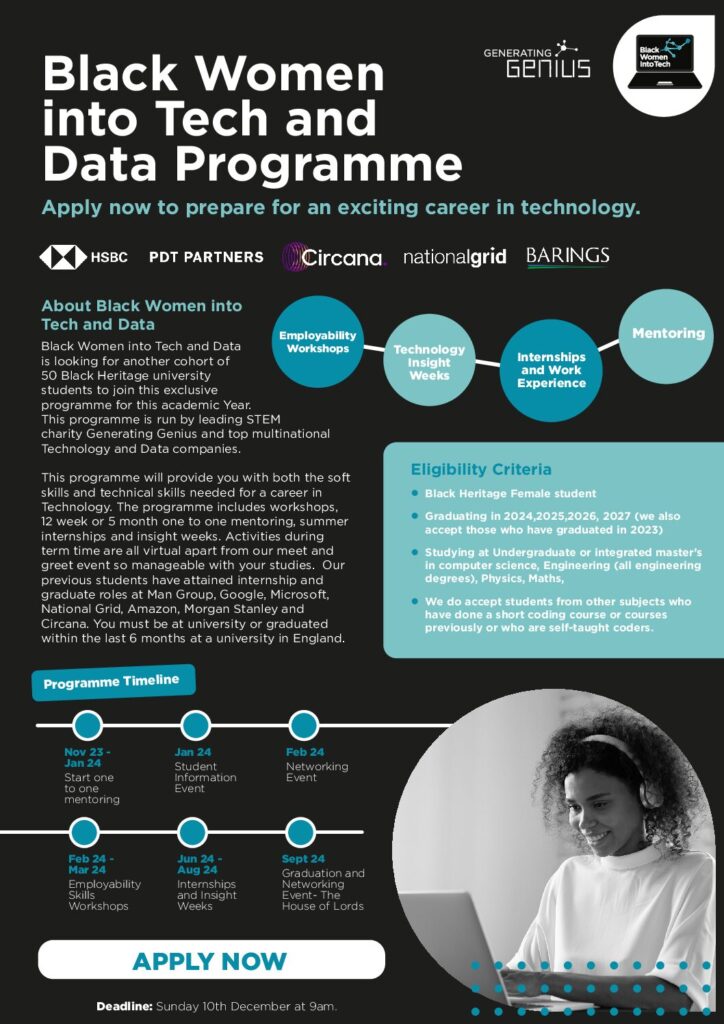NCL Internships are open to all current Newcastle University students and provide a unique opportunity to gain valuable graduate level work experience alongside your course.
Opportunities are advertised throughout the year and you find all current vacancies on My Career by searching ‘NCL Internship’
The following NCL Internships are advertising on MyCareer right now:
NCL Internship: Communications Support Intern – Newcastle University
Closing date: 12/12/2023
Duration: This internship is expected to be for a total of 60 hours, working approximately 10 – 15 hours per week between January and February 2024. Working days and times are flexible.
Bursary/wage: £13.76 per hour
For more information and to apply, visit MyCareer (link). https://mycareer.ncl.ac.uk/leap/jobs.html?id=59636&service=Careers%20Service
We are looking for someone who can produce clear copy and impactful stories that align with the tone and reputation of both the National Innovation Centre for Data and Newcastle University. In this role, the individual will work closely with the Centre Manager and Marketing and Communications Lead, who will deliver guidance and support regarding the assigned tasks and responsibilities. This role will involve the use of Outlook, MS Teams, Hootsuite and HubSpot. All training for these tools will be provided.
NCL Internship: Programmer Analyst – Newcastle University
Closing date: 13/12/2023
Duration: This internship is expected to be for a total of 72 – 80 hours, working approximately 6 hours per week between January and April. Working days and times are flexible.
Bursary/wage: £13.76 per hour
For more information and to apply, visit MyCareer (link). https://mycareer.ncl.ac.uk/leap/jobs.html?id=59692&service=Careers%20Service
The intern will automate the wrangling process, following validation rules supplied by the P&P (Planning and Performance) team using ‘industry standard’ scripting techniques such as R and/or Python, ultimately producing a system that will allow this to be easily performed each financial quarter. The intern will design and create a database to hold the new Index Data, design and produce queries/view/reports so that index files can be exported for bespoke reporting and produce detailed documentation of the wrangling scripts so that any future changes can be performed by the P&P team (upon completion of training).
Get in touch with us
If you have any queries regarding careers and employment, big or small, no matter what stage you’re at, you can get advice by submitting your query via MyCareer. You can also find details of all the internships we’re currently advertising on MyCareer by clicking on Vacancies; Search Vacancies and then typing NCL Internship into the Quick Search box.
Please visit www.ncl.ac.uk/careers to explore all we offer!

